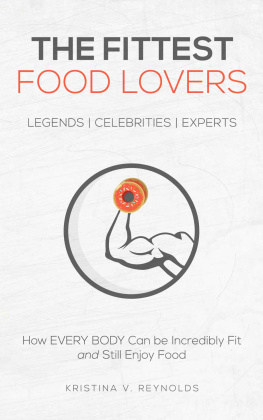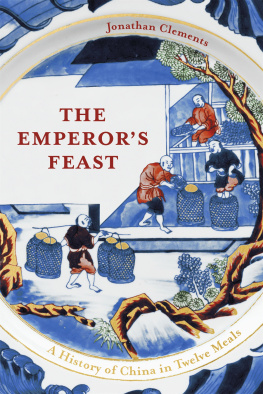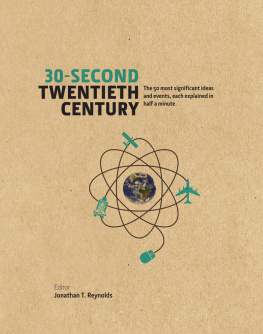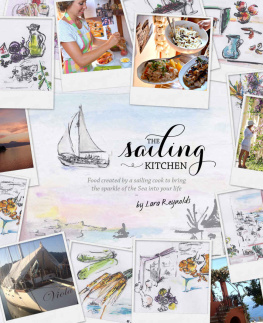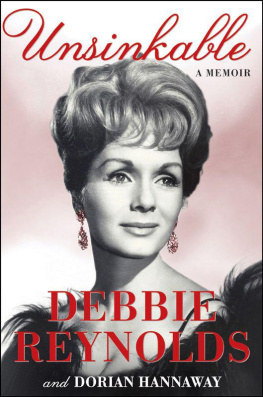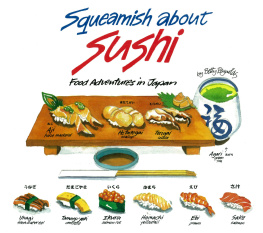
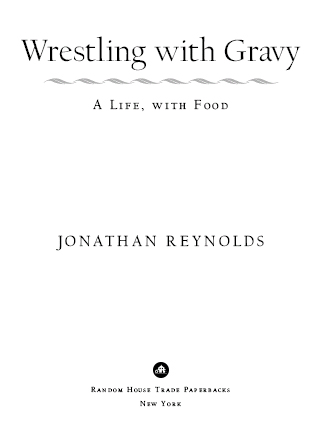
Contents

TO THE LONG AND ENDURING LINE
OF REMICKS AND REYNOLDSES,
PARTICULARLY THOSE DESCENDING UPON
AND EMANATING FROM QUINCY, MASSACHUSETTS,
AND FORT WORTH, TEXAS

I dont mind dying broke.
I just dont want to be broke the day before.
DONALD W. REYNOLDS
Be careful, Jonnie!
EDITH REMICK REYNOLDS
Introduction: Exhuming the Lede

I VE WRITTEN ABOUT food on the sly since the age of twenty-nine, never expecting any of it to see the light of day. In an attempt to make order of what was then a chaotic life, I began making candid diary entries about restaurants and dinners where Id been either guest or host, noting not only what was on each menu but evaluating it and the events surroundingsand occasionally throwing in the emotions and current events that went with it. If I traveled to London or Atlanta or Alleghany County, North Carolina, or Los Angeles or Manila, Id take notes about the people and the food (though there wasnt much to write about in Manila except for the mangoes). Between jobs, Id watch afternoon television cooking showsThe Julia, of course, and Graham Kerrfor their technique and recipes. Id kept a sports scrapbook as a kid, cutting out pictures and (rarely) articles about stars in every conceivable sportI even had a few pages of swimmersand now reverted to childhood practice, only this time filling the scrapbook with recipes and (really rarely) photographs. I was sure this was a sideline interest, possibly a psychotic one, so I kept it secret. I should have realized that as I was spending more time describing the preparation for the small dinners I threw for eight to twelve people than on the script I was supposed to be working, and more time on the preparation itself than on the descriptions, food was becoming more than a way of not dying. It didnt occur to me that making scribbles in little notebooks would one day inadvertently prepare me to turn future scribbles into magazine columns.
A lede is newspaperese for the eye-catching topic of a story, the burying of which in someplace other than the first sentence or two is a sure sign of the amateur and a probable loss of the readers attention. It is spelled as it is so as not to be confused with lead as in leaden, perhaps for fear it might be mistaken as criticism of the writing. By squirreling away these notebooks, I was not only burying one of my lifes ledes, I was burying the whole story.
Often, these dinners included some televised eventthe Oscars, a World Series, the landing on the moonto ensure that the guests wouldnt be bored if I was out of the room and they didnt like one another or, more frequently, to keep them happy when dinner was two or three hours late. In 1972, my longtime friend the abstract painter Gary Stephan and his girlfriend Linda Patton and I watched every night of the Summer Olympicsa joyful occasion until the terrorists arrived, then a riveting and somber one. I made all the food every night, liberally mixing cuisinesa bananas Foster preceded by petits pois braised with lettuce, preceded by Chinese woolly lamb (chunks of shoulder with cellophane noodles).
Food is controllable, while most of life isnt. And cooking is power: If youre the chef, youre determining what people eat. Cooking encourages freedom and invention, but if youre stuck, you can always fall back on a formula inside a cookbook or something cribbed from Batali on the Food Network. I cook most when feeling helpless: When Ive been fired from a job or not hired for another, or a woman didnt phone back or did but said, I dont think this is working, Id zip to the stove, seek out Jeremiah Towers blueberry financier, see if I could make a duck-liver mousse, find a new kind of heat to throw into a gumbo, and invite noisy people over. Not only would they be a distraction from my romantic or professional agony of the moment, but by being in charge of others for a few hours, I could be in charge of me for a few hours.
My first paid writing jobs were for David Frosts and Dick Cavetts television showsthe most exciting daily jobs Ive ever had. In 1969, Frost was determined to change American television and so approached it like a journalist: get this story, that scoop, this embarrassment to surprise a guest, this confrontation between audience and pundit, all in the mold of an entertaining talk show like Johnny Carsons. Cavett was more cerebral and less rabble-rousing but appreciated guests who didnt usually appear on television. (He was much praised for an appearance by Nol Coward and the Luntswhich irritated him, since he knew they meant little in terms of national ratings.) At the Frost and Cavett shows, I booked and pre-interviewed a guest or two each day and, as a result, met just about everyone I ever wanted to: politicians, writers, movie stars, artists, singers, directors, Colonel Sanders his own self, and even occasionally the Right Woman. I strongly recommend this line of work for at least a year or two to everyone with a crush on adrenaline.
It was also immensely satisfying because whatever I wrote was usually seen on national television that very night. This instant gratification was ruinous for a writing career, and spoiled me for every other medium. When I wasahemexcused from the Cavett show in 1972 and was seriously out of work for the first time in my life at the age of twenty-nine, I took up writing plays and moviesa Sisyphean task, considering my natural disinclination for self-motivation. After the razzle-dazzle of daily television, and now facing an electric typewriter in the stillness of my living room, either there was no feedback at all or it would dribble in months after the work was completed. I dont have now, and didnt have then, sufficient self-confidence to shore up a fathomless need for reinforcement, so I took up cooking. It was instantly creative, sensual, filled my tiny apartment with wonderful smells, and became a much-admired way to avoid writing. Other writers would say to me, So thats how you dont write. Cool. And the reinforcement was as instantaneous as a daily talk shows, unless I was preparing thousand-year-old eggs.
Serendipitously, I learned that women find a man cooking seductive. Im not sure why. Perhaps its the surprise, or the role reversal, or some revelation of this warm fuzzy we men are secretly supposed to have if only wed admit it, or the implied altruismHes taking the time to whip up that riz limperatrice just for mebut every woman Ive asked, married or un-, claims that a man cooking specifically for her is aphrodisiacal.
The converse is not true. Most men still find women who cook specifically for them scary, grasping, desperate, and clearly in search of a lifelong mate. Worst of all, its expectedlike men fixing the satellite dish. Women need to not cook for thirty or forty years so it becomes a novelty again.
My evidence is empirical. Two instances spring to mind. I wish I could brag about them over beers, but due to substantial defects in my personality, both failed to evolve into anything lasting longer than a few hours. The first woman, although sufficiently smitten by what I prepared, wouldnt go out with me for another five months, and that date was the last. Something terrible must have happened between the pear frangipane tart and breakfast, and I never knew what it was, though I am still willing to learn.
Next page


